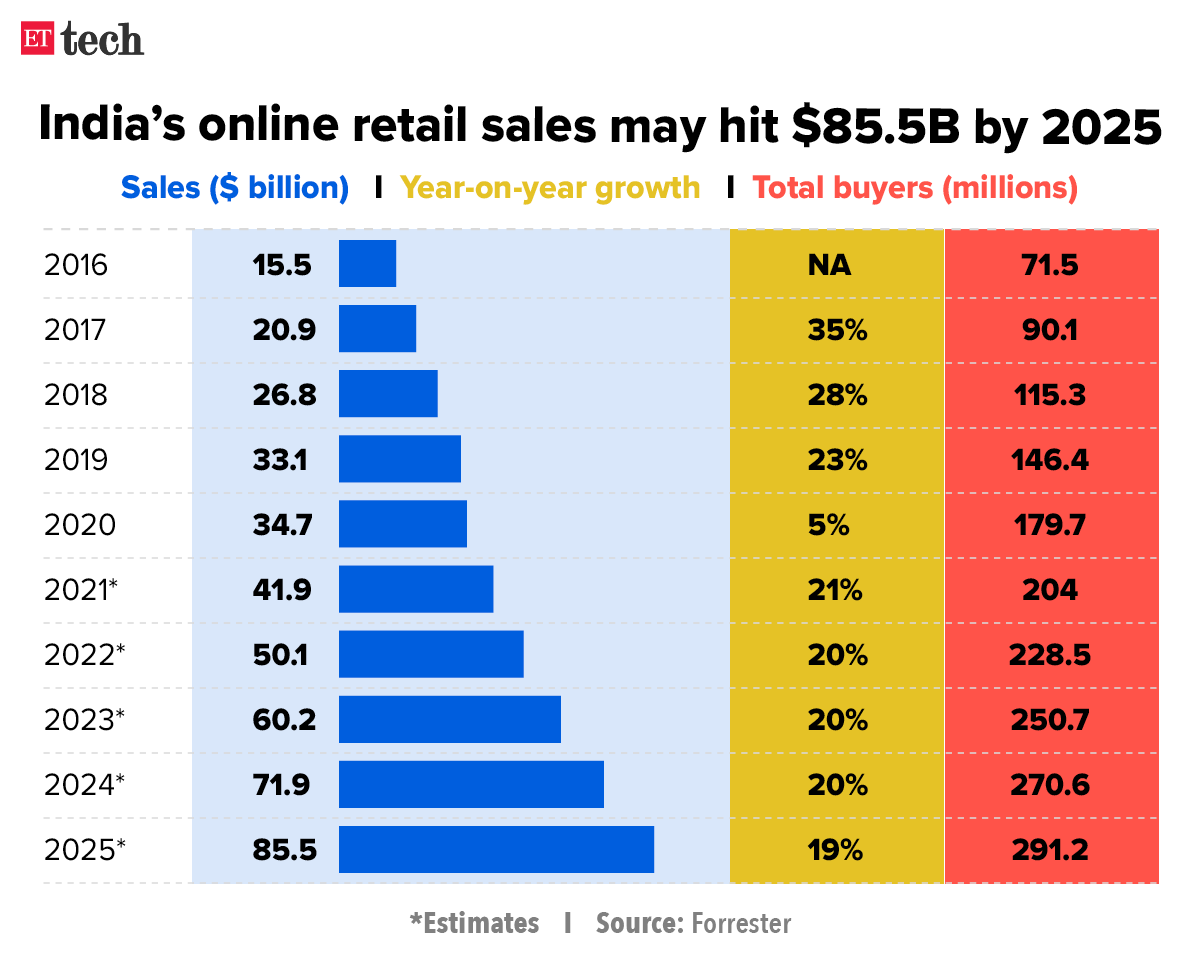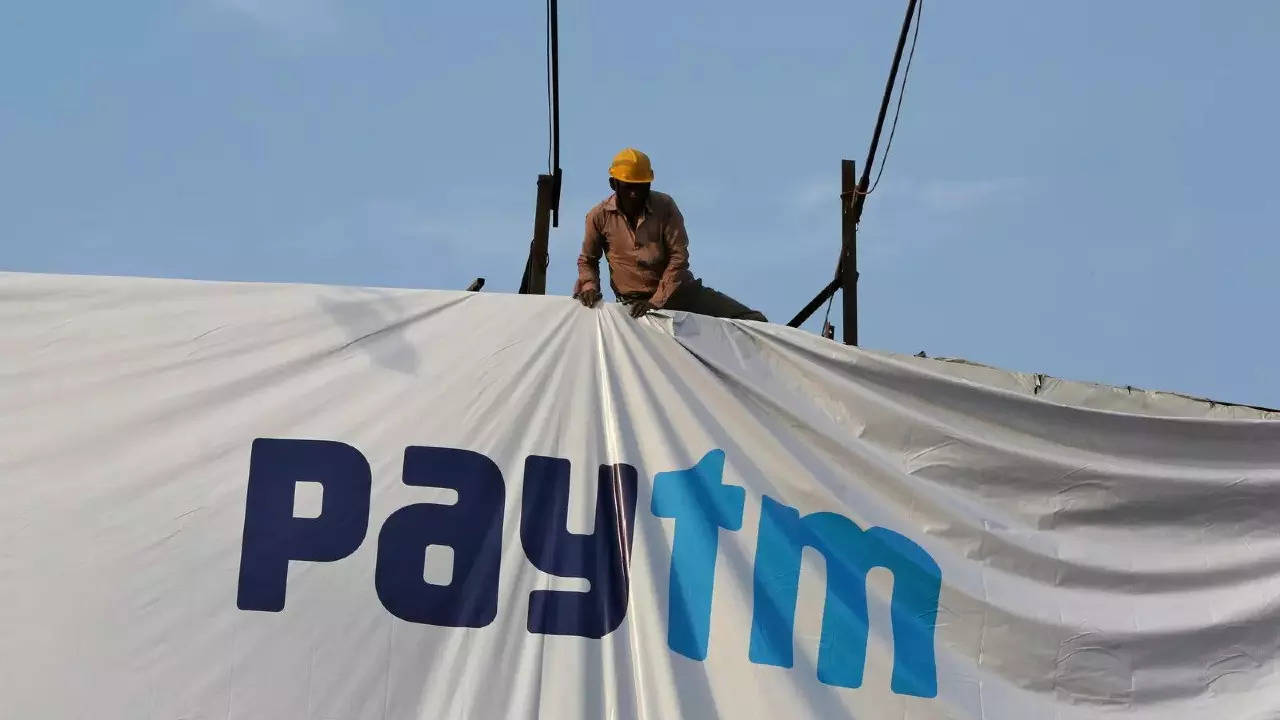Also in this letter:
■ Four biggies own 80% of Indian ecommerce: Forrester
■ Paytm analyst who predicted slump reduces target price Rs 450
■ Reliance, Ola Electric win incentives in $2.4B battery scheme
Programming note: ETtech Top 5, ETtech Morning Dispatch and our weekend newsletter ETtech Unwrapped are going on a short break. Have a happy and safe Holi and we’ll be back in your inbox on Monday!
Tax officials raid Zetwerk’s offices, founders’ homes suspecting tax evasion
Several offices of Zetwerk Manufacturing, a contract maker of consumer and capital goods, have been raided by income tax officials on suspicion of tax evasion, sources told us.
The homes of its founders, and that of Prayank Swaroop, a director on the company’s board, were also searched.
“Cash has been seized and the searches are now going beyond offices to Zetwerk’s warehouses, too,” said a person with knowledge of the development.
Investor withdrew: Last December, Zetwerk raised about $210 million in a funding round led by US-based Greenoaks Capital, with participation from Iconiq Strategic Partners and others. According to sources, US-based Iconiq Capital was also going to be part of the round but pulled out at the last minute.
“There were issues during the due diligence and they withdrew their term sheet,” said another person with knowledge of the development.
Startups under the scanner: Zetwerk is the latest in a series of startups, including BharatPe, Paytm Payments Bank, Trell and Infra.Market that are facing investigations.
Reliance, Tata to join Amazon, Flipkart in dominating Indian ecommerce: Forrester

India’s Amazon-Flipkart ecommerce duopoly is quickly becoming a four-way competition with Tata and Reliance joining the fray, and the four companies own a combined 80% of India’s online retail market, according to a report shared with us by US-based research and advisory firm Forrester.
“Each is manoeuvring to gain market share,” said the report, titled The State Of Online Retail in India.
While Tata has acquired platforms such as BigBasket and 1mg, Reliance has picked up Dunzo and Netmeds.
We also reported on March 16 that Tata was seeking clearance to start operating on the Unified Payments Interface (UPI) as a third-party payments service. And on March 11 we reported that Tata Digital was seeking more funds from its parent company Tata Sons for expansion.
Offline shrinks, online grows: The report said India’s overall retail growth slowed for the first time after several years of double-digit growth given that the gross domestic product (GDP) shrunk 7.3% in FY21. But online retail grew 5%, adding $1.6 billion in sales.
The report said India’s online market will grow around 20% year-on-year to hit $85.5 billion by 2025.

Post-pandemic ecommerce: Before the pandemic, smartphones, computer hardware and software, and consumer electronics were the growth engines for ecommerce. But the pandemic turned this around, with groceries and personal care products now seeing more growth.
India’s opportunity: Forrester’s E-Commerce Readiness Index 2020 categorises India as a “large and developing opportunity for online retail”, with only the US and Chinese markets representing larger opportunities.
The number of online buyers in India jumped from 71.5 million in 2016 to 179.5 million in 2020, and Forrester said it expects this number to hit 291.5 million by 2025. This growth will be largely driven by smaller towns and rural areas, it said.
Paytm analyst who predicted slump slashes target price to Rs 450

Paytm, whose stock has slumped 71% since its November market debut, had its price target reduced further by a Macquarie Capital Securities (India) analyst who was early to predict the company’s market troubles.
Valuation, regulatory concerns: Macquarie’s Suresh Ganapathy cut his price estimate to Rs 450 from Rs 700, citing lower valuations for fintech companies globally. He didn’t change his earnings or revenue estimates for Paytm, which he rates underperform.
Ganapathy cited fintech regulations and stricter compliance norms as potential headwinds — on Friday, the Reserve Bank of India barred the company’s Paytm Payments Bank venture from accepting new customers, adding pressure on the stock.
Action, reaction: On Thursday, Paytm’s stock price fell 6.01% to end the day at Rs 596.30. The stock has wiped out Rs 1 lakh crore of investors’ wealth since listing. Its market cap, which stood at nearly Rs 1.4 lakh crore on debut, is hovering around Rs 40,000 crore.
Ahead of Paytm’s listing, Macquarie analysts including Ganapathy initiated coverage with an ‘underperform’ rating and a price target of Rs 1,200. The IPO shares were priced at Rs 2,150.
Reliance, Ola Electric win incentives in India’s $2.4B battery scheme

Reliance Industries and Softbank Group-backed Ola Electric will receive incentives under India’s $2.4 billion programme to boost local battery cell production after winning a tender, Reuters reported.
The winning bidders also include Hyundai Global Motors Company and Indian jewellery maker Rajesh Exports, the sources said.
Power drive: The Indian government last year finalised a programme to encourage companies to make battery cells locally as it seeks to establish a domestic supply chain for clean transport and renewable energy storage to meet its decarbonisation goals.
Ola Electric and Hyundai will get incentives for 20 gigawatt hours (Gwh) capacity while Reliance and Rajesh Exports have won incentives for 5 Gwh, the sources said. They did not give a financial value.
Ola Electric said yesterday it has appointed Prabhakar Patil, the former chief of LG Chem Power, to its board, and has plans to set up 50 Gwh of storage capacity.
Passenger EV sales jump: On March 8, we reported that the retail sale of passenger EVs has risen significantly over the past year. Sales of electric four-wheelers jumped 296% from 593 in February 2021 to 2,352 units in February 2022, while those of electric two-wheelers rose 433% from 6,083 to 32,443 units over the same period, according to data from the Federation of Automobiles Dealers Association.
Indian fintech firms have no data advantage over banks: Moody’s

As the Reserve Bank of India (RBI) barred Paytm from taking on new customers for its payments bank, a new report on Thursday said that fintech platforms’ dominance in digital payments may not result in a significant data advantage over banks.
According to Moody’s Investors Service, the introduction of the Unified Payment Interface (UPI) in 2017, which allows funds to be transferred instantaneously around the clock, has been a key catalyst in the development of digital payments due to its ease of use.
Yes, but: “… their dominance may not lead to significant advantages over banks, because the UPI’s open architecture means that a large user base does not necessarily make a particular service provider more competitive than others on the system,” said Srikanth Vadlamani, Moody’s vice president and senior credit officer.
While fintech payment companies in India have led the rapid growth of digital payments, their dominance may not translate to competitive advantages in other financial services.
In addition, India’s major banks have significantly beefed up their digital product offerings and can withstand the competition from fintechs, the report said.
Today’s ETtech Top 5 newsletter was curated by Arun Padmanabhan in New Delhi and Zaheer Merchant in Mumbai. Graphics and illustrations by Rahul Awasthi.
























